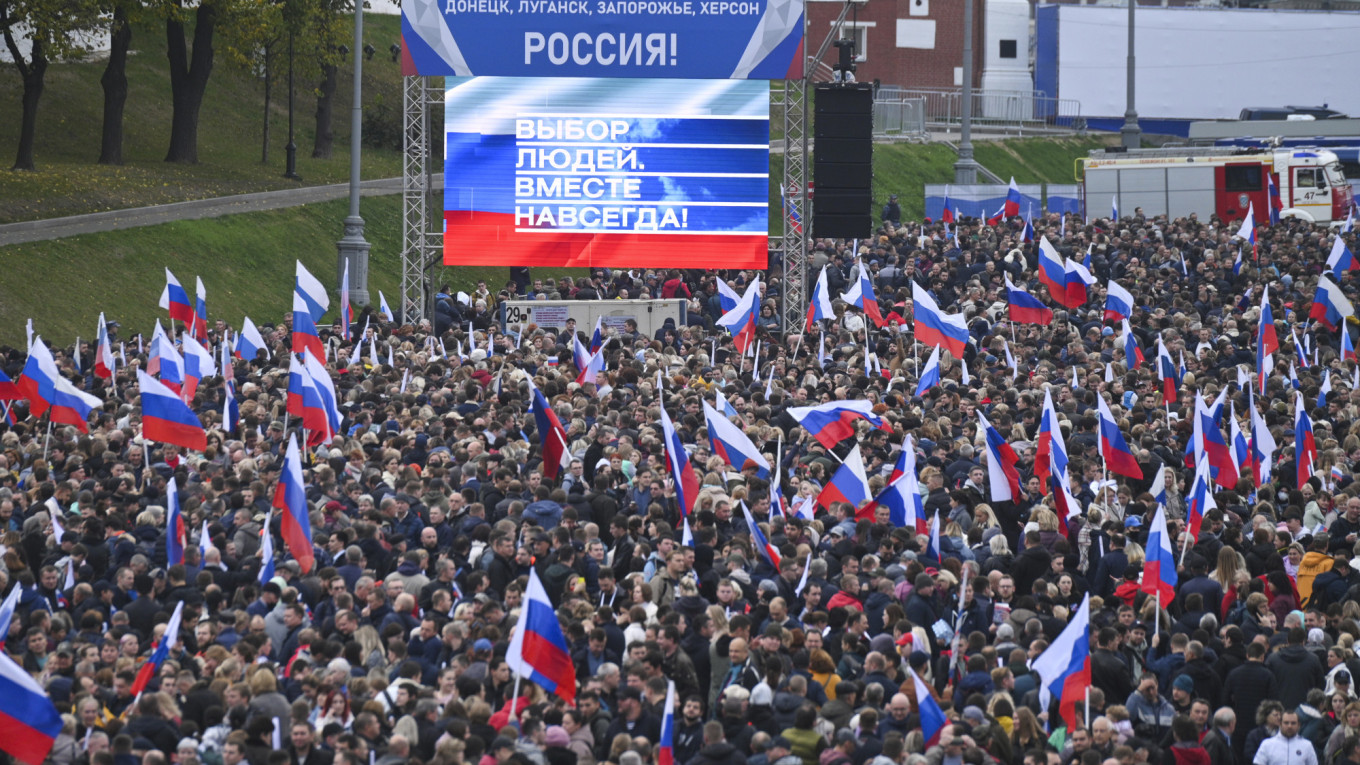The presidents of nine NATO countries in central and eastern Europe declared on Sunday they would never recognise the annexation by Russia of Ukrainian territory.
Their reaction comes two days after Russian President Vladimir Putin signed treaties to annex four Moscow-occupied regions of Ukraine -- Donetsk, Kherson, Luhansk and Zaporizhzhia -- following "referendums" the West has dismissed as "sham".
The presidents issued a joint statement saying they could not "stay silent in the face of the blatant violation of international law by the Russian Federation".
"We reiterate our support for the sovereignty and territorial integrity of Ukraine," they said.
"We do not recognise and will never recognise Russian attempts to annex any Ukrainian territory."
The statement was issued by the presidents of the Czech Republic, Estonia, Latvia, Lithuania, Montenegro, North Macedonia, Poland, Romania and Slovakia.
Four of the signatories -- Poland, and the three Baltic states -- are on NATO's eastern flank with Russia.
Two others -- Romania and Slovakia -- have borders with Ukraine.
Hungary, which also borders Ukraine, was notably absent from the list. Its nationalist prime minister, Viktor Orban, has sought close ties with Putin in recent years and railed against European Union sanctions on the Kremlin.
Also absent were Albania, Bulgaria, Croatia and Slovenia.
The statement, published on the website of the Polish president's office, said the leaders of the signatory countries had "visited Kyiv during the war and witnessed with their own eyes the effects of Russian aggression".
"We support Ukraine in its defence against Russia's invasion, demand Russia to immediately withdraw from all the occupied territories and encourage all (NATO) Allies to substantially increase their military aid to Ukraine," it said.
"All those who commit crimes of aggression must be held accountable and brought to justice."
The presidents said they stood by a decision NATO made 14 years ago, supporting Ukraine's wish to join the trans-atlantic military alliance at a future date.
They did not comment on Russia's annexation of Ukraine's Crimean peninsula in 2014, or on Ukraine's request last Friday for fast-track NATO membership following Russia's annexation manoeuvre.
NATO members have hesitated at accepting a country at war -- which, by treaty, would oblige the alliance to come to its defence.
NATO's Article 5 says an attack on one member is tantamount to attack on all.
A Message from The Moscow Times:
Dear readers,
We are facing unprecedented challenges. Russia's Prosecutor General's Office has designated The Moscow Times as an "undesirable" organization, criminalizing our work and putting our staff at risk of prosecution. This follows our earlier unjust labeling as a "foreign agent."
These actions are direct attempts to silence independent journalism in Russia. The authorities claim our work "discredits the decisions of the Russian leadership." We see things differently: we strive to provide accurate, unbiased reporting on Russia.
We, the journalists of The Moscow Times, refuse to be silenced. But to continue our work, we need your help.
Your support, no matter how small, makes a world of difference. If you can, please support us monthly starting from just $2. It's quick to set up, and every contribution makes a significant impact.
By supporting The Moscow Times, you're defending open, independent journalism in the face of repression. Thank you for standing with us.
Remind me later.






